News and Announcements
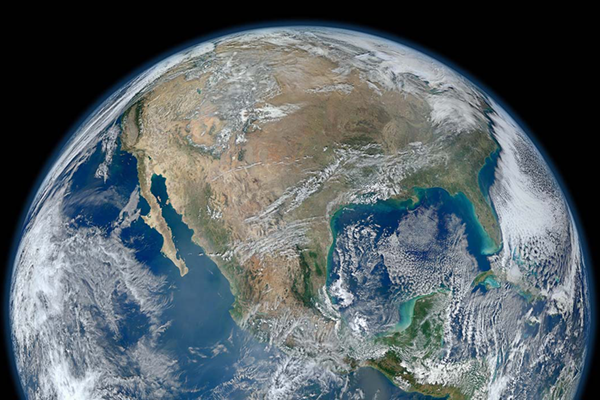
SF State is ramping up for its annual Earth Week 2024 festivities for Monday, April 22 – Thursday, April 25. After its successful 2023 inaugural event, SF State’s Climate HQ — a campus hub for climate-related activities — teamed up with partners across campus to organize some of the University’s Earth Week events onto one calendar. Climate HQ worked with groups from different colleges and departments and tailored events to students’ interests.
For the second annual Climate HQ Earth Week, the hub is continuing to work with students — several student interns are dedicated to Earth Week — and organizations like Associated Students’ Environmental Resource Center (ERC). Climate HQ is once again inviting students, faculty and staff from across campus to share art, make presentations and perform music during the week. New events this year include a climate justice jobs mixer with external organizations and an alumni panel, a panel on Indigenous land stewards and land rights hosted by the Race and Resistance Studies Department and an art and activism celebration. Earth Week will close on April 25 with the second annual Climate HQ Earth Week Film Festival, showcasing select work from the SF State community and external supporters
“Everyone should participate in Earth Week because there is something for everyone,” said Alcides Fuentes, Climate HQ’s program and communication specialist. “We want people to feel empowered, to get creative and to realize that we all have a role to play in shaping a better world for current and future generations. Even though the world might seem like a hopeless and depressing place, there is still joy and hope. We can still take action no matter how bad the situation may seem.”
Various SF State organizations celebrated Earth Week in the past, but 2023 marked the first time Earth Week activities were formally supported by Climate HQ via the new Climate Justice Leaders Initiative (CJLI). CJLI aims to equip the University’s diverse student body to become equity-minded leaders through courses, community activities and campus events like Earth Week.
“Our goal in Climate HQ and CJLI is to connect and support the climate justice-related research, education and activism being done by students, faculty and staff, and build connections with alumni, community members and organizations,” said SF State Lecturer Erica Pulley, Climate HQ’s annual events chair. “Earth Week is an opportunity to highlight and celebrate these efforts and build hope, resilience and action.”
Monday, April 22
Guided Planetarium Shows: “Earth, Climate Change and The Cosmos”
11 a.m. and noon, Thornton Hall 422
There will be two shows. Seating is limited and doors close promptly at start times.
Earth Week tabling, presentations and performances
11 a.m. – 2 p.m., Malcolm X Plaza
Earth Week Launch Party
5 – 8 p.m., The Depot, Cesar Chavez Student Center
Tuesday, April 23
Climate Justice Jobs Mixer
11 a.m. – 3 p.m., Jack Adams Hall, Cesar Chavez Student Center
Alumni panel: “Life After Graduation in Environmental and Climate Engaged Careers”
Noon – 1:30 p.m., Jack Adams Hall, Cesar Chavez Student Center
Wednesday, April 24
ERC’s Student Flea Market
11 a.m. – 2 p.m., Jack Adams Hall, Cesar Chavez Student Center
Panel: “Asserting Indigenous Sovereignty: Defending Indigenous Land Rights”
3:30 – 5:30 p.m., Knuth Hall, Creative Arts building
Thursday, April 25
Honoring the Relationship between Activism and The Arts
11 a.m. – 2 p.m., Malcolm X Plaza
The Poster Syndicate will be on site screen-printing original artwork designed just for this event; free screen-printed posters will be available.
Climate HQ’s Second Annual Earth Week Film Fest
4 – 7 p.m., Knuth Hall, Creative Arts building
Enjoy select student works, the award-winning documentary “Water Warriors” by filmmaker and activist Michael Premo and a preview of the upcoming series “Climate California” by NorCal Public Media. Local filmmaker and founder of Docuvist will moderate a guest panel and Q&A. Locally and sustainably sourced food by Alicia’s Tamales Los Mayas will be available.
Visit the Climate HQ website to learn more about Earth Week festivities.
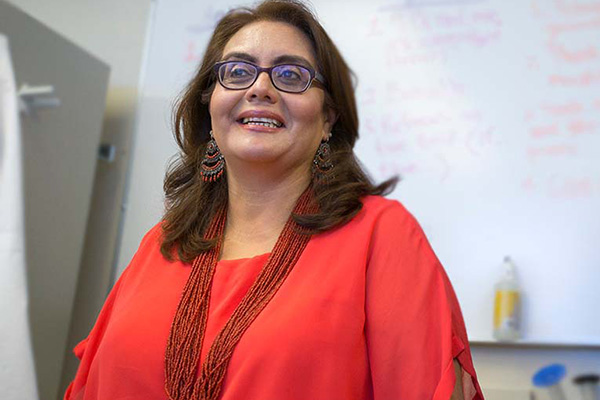
For SF State Professor of Biology Leticia Márquez-Magaña, it’s all about community. Her health equity research, educational efforts and prominence as a public figure in the scientific community — none of it’s about her at this stage in her career.
“It’s all about the little Leticias. They need to see what is possible in order to be what they usually don’t see,” she explained. This community mentality was instilled in her at a young age by her family and Mexican culture.
Today, Márquez-Magaña has been recognized as a Fellow of the American Association for the Advancement of Science (AAAS), the world’s largest general scientific society and publisher of the Science family of journals. She is among 502 scientists, engineers and innovators spanning 23 categories who are being honored for their scientifically and socially distinguished achievements throughout their careers.
Márquez-Magaña is the latest SF State faculty member to receive this honor and one of three CSU system-affiliated researchers in the 2023 cohort. She joins 12 SF State faculty elected to this status since 1874. The earliest SF State honoree was recognized in 1947 (when SF State operated under the name “San Francisco State College”). The last SF State fellow before Márquez-Magaña was Professor Emerita of Biology Jan Randall in 2015.
Márquez-Magaña says learning of the honor had her feeling “surprised, in a good way,” explaining that she’s had many career experiences that made her feel invisible. “Maybe to you, I look like a scientist, but for other people, it doesn’t align,” she said. “The other thing is that I am often dismissed because I say things that are triggering because of my self-recognized role to cause discomfort, to create change.”
AAAS honored Márquez-Magaña for her contributions to the fields of bacterial gene expression and health equity research. Though now known for her explorations of health equity issues, it took Márquez-Magaña a while to get there, largely because traditional academia tried to convince her that the “best science was not tainted by social relevance.” But she always doubted that.
A real turning point came in 2005. While teaching a course about health disparities in cancer, Márquez-Magaña saw data about total cancer deaths since 1975. Shockingly, cancer death among Latinas wasn’t collected until the early 1990s when a national law passed in 1993 mandated inclusion of women and minorities in federally funded clinical studies.
“I remember thinking, ‘Gosh, they don’t even care if we’re dying.’ … I’m part of the problem, and that freaked me out,” she said.
Márquez-Magaña joined SF State in 1994 and established the Health & Equity Research (HER) lab in 2007. The lab is now co-led by SF State Assistant Professor of Biology Cathy Samayoa (B.S., ’09; M.S., ’11), who trained with Márquez-Magaña as an SF State student. Together they lead a group that combines researchers’ (usually students’) lived experiences with accessible molecular biology tools to tackle complex health problems. Research projects include, but are not limited to, identification of factors contributing to cellular aging in Black communities, biomarkers in Latinas with breast cancer, nature-based stress interventions that are culturally inclusive and anti-racist, and more. Researchers bring their insider knowledge — social, linguistic and navigational skills — for community-engaged research.
“The lab’s current motto is ‘ground truth and community knowledge through science.’ What really shifted for us is that it’s not about [faculty] research questions. It’s about what the community wants to know,” she said.
The lab is a space with many tools and psychosocial support that students who are not represented in science need to realize, optimize and implement their scientific vision. Although each researcher brings their individual skills and wisdom, research is done collectively. This allows for better work across disciplines and encourages a communal approach to research that Márquez-Magaña has always implemented with colleagues.
“Others saw science as a battle: ‘We’re going to beat that research team’,” she shared of earlier experiences at research institutes. “It just never was a battle for me. I always knew that we were better working together. I think that’s because I was part of a minoritized group.”
In 2014, Márquez-Magaña helped establish the National Institutes of Health-funded SF BUILD to enhance the diversity of the biomedical research workforce. As SF BUILD’s lead principal investigator and core leader, Márquez-Magaña collaborates with faculty and staff at SF State, UC San Francisco and community organizations to transform teaching and research environments. Recently, the CSU’s STEM-NET hired Márquez-Magaña to bring more health equity research training and funding to the 23-school system.
“The CSU is where the workforce gets developed. What does the workforce do? The California workforce services the needs of Californians. We can do research that’s meaningful and impactful in our communities,” she said.
Learn more about SF State’s Department of Biology and SF BUILD.
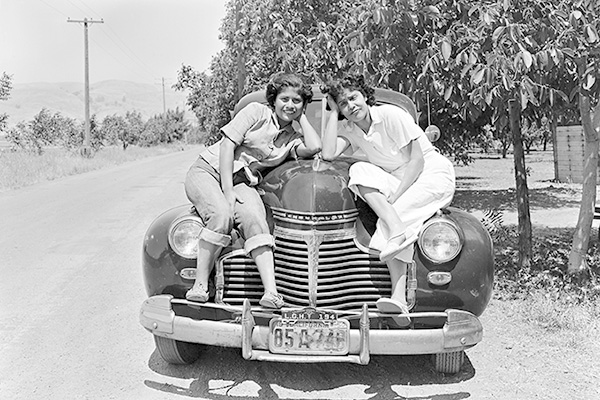
Join the SF State Global Museum and Museum Studies program for three free events celebrating the Filipino American experience Thursday, May 2 – Saturday, May 4. The events are in conjunction with their current exhibit, “Through My Father’s Eyes: The Filipino American Photographs of Ricardo Ocreto Alvarado.” All events are in the Global Museum (Fine Arts 203).
Schedule:
- Thursday, May 2, 5:30 – 7:30 p.m.: “Preserving Legacy and Community History: A Panel Discussion.” Explore themes of legacy, community history and the importance of organizations like the Alvarado Project in preserving these stories. Facilitated by Professor Emeritus of Art Mark Dean Johnson. Panelists include Janet Alvarado of the Alvarado Project, SF State Afro-Cuban Ensemble Director John Calloway and Benjamin Stone and Anna C. Lee of the Stanford University Libraries.
- Friday, May 3, 1 – 3 p.m.: “Curator Walk-through and Anthology Reading.” Explore the exhibit with anthology readings and a discussion with \Janet Alvarado, activist and San José State University Professor Emerita of Asian American Studies and Women Studies Estella Habal and registered nurse, community champion and thought leader Laarni San Juan.
- Saturday, May 4, 1 – 3 p.m.: Closing celebration with music and dance, featuring John Calloway and Manny Dragon.
Presented by SF State Global Museum and Museum Studies program, The Alvarado Project and SOMA Pilipinas.
Photo: “Women in the Countryside” by Ricardo Ocreto Alvarado
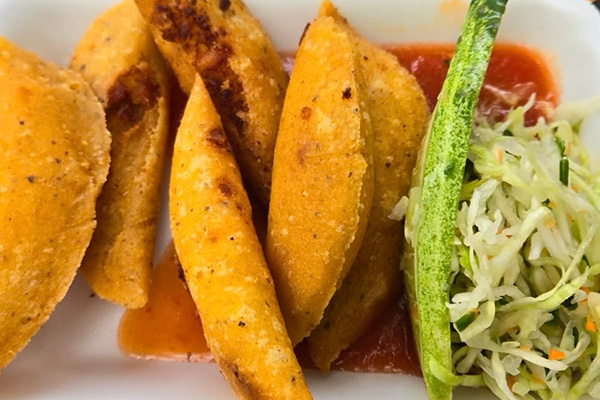
The Nutrition and Dietetics program received a Teagle Foundation grant to provide more cultural and global foods in the Nutrition and Dietetics 357 “Principles of Food Preparation” lab, taught by Didactic Program in Dietetics Director Jennifer Stimson and Chef Amilcar Castillo-Ortiz.
The grant was designed to improve the cultural diversity of recipes used in the cooking lab. Teagle funds were used to update the Miele lab library with more globally inspired cookbooks and to support Japanese milk bread and sushi classes, enabling Chef Castillo-Ortiz to expand his already-vast culinary skills. New equipment — an air fryer, rice cooker, woks, bamboo steamers, sushi rolling mats and tortilla presses — has allowed more international cuisine to be cooked in the Miele lab. Over the last several semesters, students in Chef Castillo-Ortiz’s lab have made dishes such as fresh homemade queso fresco, potato-filled empanadas with pickled cabbage, Mexican bolillo (torta) bread and udon noodles.
On Thursday, April 25, SF State will host a San Francisco-wide emergency preparedness training exercise that will convey a mock mass casualty. This is a fake scenario. The exercise will help emergency responders practice the skills they need for real-world emergencies.
The event will happen at and around Annex I (Student Life Events Center) at 100 North State Drive, 8 a.m. – 4 p.m. There will be many emergency vehicles on and around campus, particularly on North State Drive and at Lot 25 on the north side of Winston Drive.
Emergency vehicles are requested not to use sirens, and all communications among participants will include the message “This is an exercise.” If you receive any emergency notifications from the SF State Office of Emergency Services or San Francisco agencies, they are for a real emergency and immediate protective action should be taken.
There will be about 100 volunteers, many of whom will act as part of the exercise and may appear injured — including the use of fake blood in some cases. Volunteers will also act as reporters.
Traffic around the north side of campus may be impacted, and access to North State Drive by foot may not be possible from 11 a.m. to 3 p.m. There are efforts to ensure the exercise does not impact other normal campus operations.
In addition to approximately 200 San Francisco Fire Department, San Francisco Department of Emergency Management and San Francisco 911 first responders exercising these skills on campus, there are a number of hospitals across San Francisco that will participate to test their management of a large influx of patients into emergency rooms. This is a unique opportunity for SF State to partner with crucial city agencies and do its part in ensuring first responders are better prepared for an emergency.
For concerns or questions, please email the SF State Office of Emergency Services.
On Friday, May 24, at Oracle Park, thousands of graduating students will take the field and begin the next chapter of their lives. Don’t miss your chance to support your graduate by creating a personalized message that will appear on the scoreboard in Oracle Park prior to the Commencement ceremony.
One hundred graduate messages are now available by making a $100 contribution to the Senior Class Gift. Your entire contribution will benefit the Senior Class Gift.
Create an unforgettable day for your graduate and purchase your message now through Tuesday, April 23, at 5 p.m., or until all 100 are sold!
After making your $100 online donation to the Senior Class Gift, you will receive a Google Form to fill out your special message. Messages are limited to congratulatory notes in support of graduates and the character limit is 60, including spaces and punctuation.
All donations to the Senior Class Gift are tax deductible.
Donors will receive an email by Monday, May 20, noting the time range that the messages will be displayed on the scoreboard at Oracle Park prior to the procession at 5:30 p.m.
In recent years there have been many disturbing reports of suppression of academic freedom and freedom of speech at colleges and universities across the country. The Academic Freedom Committee (AFC) of the Academic Senate knows of instances where such suppression has occurred on the SF State campus.
The Academic Freedom Policy, which was last updated in 2013, does not reflect the realities of COVID, teaching online and especially some of the polarizing trends in society. These trends have contributed to a general intolerance, both within and outside academia, for academic freedom and the right to express opinions which, to some, may be unwelcome.
The AFC wants to hear from faculty as it updates the policy, in order to make it reflect the experiences of SF State more accurately and to help identify where the policy needs revising.
Teaching faculty (either lecturer, tenure-track or tenured): Please complete the survey. The survey is open until Wednesday, April 24.
For questions, please email AFC Chair Jeff Greensite.
Voting for the spring 2024 Staff Council elections is open through Friday, May 3. As a member of the SF State community, the Staff Council wants your voice to be heard!
There is currently one seat each for bargaining units 1, 2, 4, 5, 6, 7 and 8. For unit 9, there is one General Technical Supports seat and three Technical Data Support seats.
For questions, please email the Staff Council.
Every semester, the Experimental College (EXCO) accepts proposals from undergraduate students to teach a course on any topic of their choice the following semester.
These course topics can be an extension of a student’s individual course project(s), an extension of their organizing work, or an outside interest that a student wants to explore by creating a curriculum around it. Students have prep workshops before the semester and then biweekly meetings during the semester they teach to learn about pedagogy, share what is working in their classrooms and give each other ideas.
The current Faculty Advisory Board has representatives from English and Urban Studies. They are seeking one to two additional faculty from departments across campus to primarily:
- Assess and give feedback to course proposals,
- Visit EXCO teacher meetings as available to offer support.
- Be available to student teachers, especially in your department, for your office hours if students seek guidance.
- Contribute to events, outreach, announcements in your department and other ways to support and grow the EXCO program.
If you are interested in volunteering for this committee role starting in fall 2024, please email Dan Curtis-Cummins, EXCO faculty director.
Nominations and applications are invited for interim associate dean of Faculty Affairs and Professional Development. The position offers a unique opportunity for senior faculty to gain valuable leadership experience in the central administration of the university.
For 2024 – 2025, the priorities in the Office of Faculty Affairs will center on expanding diversity, equity and inclusion (DEI) initiatives, including leadership development and recruitment workshops. The associate dean will continue to assist the associate provost in all faculty-related processes and have significant responsibilities in the development and implementation of all new and continuing priorities and initiatives.
Faculty with department chair experience and/or other campuswide leadership experience are especially encouraged to apply. Applications will be accepted until review begins on Monday, May 20. Interviews will be scheduled after May 20 and will continue until position is filled. Start date is negotiable but is anticipated between Monday, July 1, and Monday, Aug. 5.
The associate dean reports to the associate provost for Faculty Affairs and Professional Development.
The SF State Academic Senate will meet Tuesday, April 23, 2 – 5 p.m., at Seven Hills and via Zoom for its 12th meeting of the academic year. To attend, please email the Senate office for a Zoom link.
Agenda:
- Recommendation form Educational Policies Council: Discontinuance for the MFA in Theatre Arts: concentration in Design/Technical Production (non-emergency), consent item.
- Recommendation from the Academic Policies Committee: New Policy – Research, Scholarship and Creative Activities Pathways Policy, in second reading
- Recommendations from the Campus Curriculum Committee, in second reading:
- Minor in Russian (name and other changes)
- Certificate in Financial Analytics (new)
- Certificate in Real Estate (new)
- Certificate in Fintech, (new)
- Certificate in Data Science for Biotechnology Professionals (new)
- Certificate in Business Analytics (new)
- Certificate in Paralegal Studies (reduce by 20%)
- Graduate Certificate in PK – 12 Climate Justice Education (new)
- Recommendation from the Academic Policies Committee: Revision to F18-146 All University Program for Educator Preparation, in first reading
- Recommendation from the Faculty Affairs Committee: Resolution on the Use of Generative Artificial Intelligence (AI) in Teaching and Learning, in first reading
- Recommendation from the Faculty Affairs Committee: Revision of policy on Temporary Faculty Range Elevation S00-211, in first reading
- Recommendation from the Student Affairs Committee: Resolution on SF State’s Renewed Commitment to Multilingualism and Internationalization, in first reading
- The Academic Senate will hear formal presentations from:
- Mary Beth Love, executive director, Metro College Success Program: “Update on Metro Success Program”
- Anoshua Chaudhuri, director, Center for Equity and Excellence in Teaching and Learning, and Andrew Roderick, assistant vice president of academic technology: “Integrating AI into the Workplace”
Do you feel stressed? Are you tired sitting at the computer? Do your eyes get blurry and irritated? Do you experience back or neck pain? Do you get irritated and find it challenging to let go? Are you looking for techniques you can implement right away to improve your health and wellbeing?
You may want to attend the “TechStress to Health” workshop series in HSS 306. Registration is not needed.
Schedule:
- Wednesday, April 24, noon: “Quick Rescue Techniques When Stressed” by Erik Peper, professor of Recreation, Parks and Tourism. Learn breathing, movement and reframing techniques that can be applied right away to restore balance and regain calmness.
- Wednesday, May 1, noon: “Clear Your Vision” by Meir Schneider, lecturer in Holistic Health Studies. Learn about the principles of natural vision improvement: simple strategies to prevent vision degeneration and techniques to improve vision and health.
This workshop series is sponsored by the Institute for Holistic Health Studies and Department of Recreation, Parks and Tourism.
The SF State Academic Freedom Committee presents “Academic Freedom and Free Inquiry: New Threats, Old Tactics” on Thursday, April 25, at 4 p.m. via Zoom.
Amna Khalid and Luana Maroja will lead a wide-ranging conversation, followed by a Q&A. Codi Lazar, a professor at CSU San Bernardino and co-founder of CSU Faculty for Academic Freedom, will serve as moderator.
Topics include:
- How important is free inquiry to the production of scholarship?
- How is academic freedom threatened on U.S. campuses?
- Should there be limits to scholarly discourse?
- Should we balance academic freedom against other values?
Khalid is an associate professor of History at Carleton College. She specializes in modern South Asian history, the history of medicine and the global history of free expression. Born in Pakistan, Khalid completed her bachelor’s degree at Lahore University and her D.Phil. in History from Oxford University.
Maroja is an evolutionary biologist and a professor of Biology at Williams College, where she is also the chair of the Biochemistry and Molecular Biology program. Her B.S. and M.S. degrees were earned in Brazil, and her Ph.D. is from Cornell University.
“So Far So Far,” the 2024 Master of Fine Arts exhibition from the School of Art, will run Friday, April 26 – Thursday, May 16, in the Fine Arts Gallery (Fine Arts 238).
The exhibition showcases new bodies of work by Jonathon Bout, Leah Koransky, Lucía Moreno Nava, Morgann Nieto, AJ Serrano, Jake Shapiro and Chelsea América Torres.
Regular gallery hours are Tuesdays – Fridays, noon – 4 p.m. It will also be open on Saturday, April 27, and Saturday, May 11.
Each artist will speak about their work during lunchtime talks on Thursdays at noon:
- May 2: Leah Koransky and Lucía Moreno Nava
- May 9: Jake Shapiro and Morgann Nieto
- May 16: Jonathon Bout, AJ Serrano and Chelsea América Torres
All programs are free and open to the public; no reservations or advanced ticketing is required.
The Dream Resource Center invites the campus community to its first RASSUS Summit on Friday, April 26, 9 a.m. – 1 p.m., at the University Club, Cesar Chavez Student Center. RASSUS (Research to Advance Services and Support for Undocumented Students) is a new fellowship that enables students to gain research experience, connect with a faculty/staff mentor and receive funding to support their studies.
Undergraduate students are encouraged to attend and learn about student research, applying to graduate school, and overall student advocacy in the CSU system.
Allies of undocumented students are welcome to join the Dream Resource Center in supporting student scholars and understanding undocumented student needs through research and recommendations.
The Center for Equity and Excellence in Teaching and Learning (CEETL) will hold its May WE WEDNESDAY event on Wednesday, May 1, 3 – 4 p.m., in Library 240. CEETL Director Anoshua Chaudhuri will lead a crafting session.
No RSVP required. Come ready to learn how to make embroidered linen — perfect for a summer project — while also cultivating relationships with fellow faculty with similar interests.
The Center for Equity and Excellence in Teaching and Learning (CEETL) invites the campus community to a mini-symposium on artificial intelligence (AI) and teaching on Friday, May 3, 9 a.m. – noon, via Zoom.
The event will feature short presentations by SF State faculty, who will share about how they use AI in the classroom. Participants will have the opportunity to ask questions. After the presentations, esteemed scholar José Antonio Bowen, author of “Teaching Naked” the forthcoming “Teaching with AI,” will deliver a keynote speech about the future of teaching and learning in higher education in an age of generative AI.
To participate in person, join CEETL’s watch party in Library 242. Lunch will be provided.
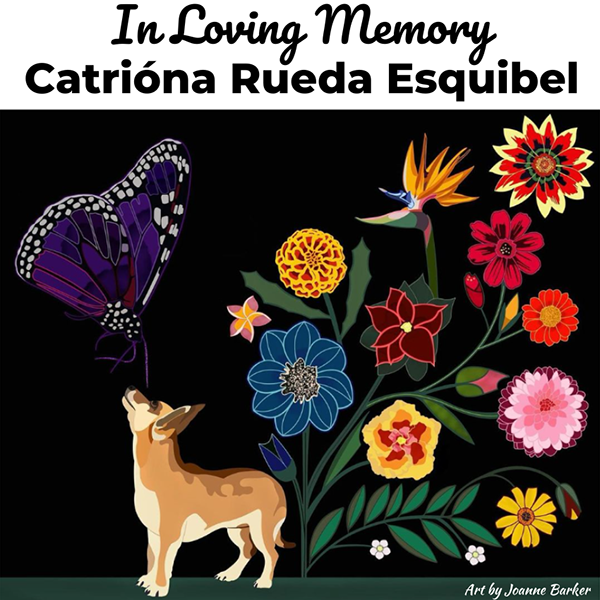
The College of Ethnic Studies will host a memorial for Catrióna Rueda Esquibel, who passed away on Feb. 8. She was the associate dean of the College of Ethnic Studies and professor of Race and Resistance Studies. She had also served as interim dean of the College of Ethnic Studies and the campuswide director of general education.
Join the college on Friday, May 3, on the fifth-floor patio of the Administration building to memorialize the contributions and spirit of Catrióna Rueda Esquibel. The formal program will be 10 – 11:30 a.m. followed by lunch and crafting. Please RSVP by Friday, April 26.
For questions, please email Ty Maniulit.
Join Risk and Safety Services for a forum on promoting wellbeing, personal preparedness and outdoor safety on Thursday, May 9, noon – 1 p.m., in Library 286.
SF State Spotlight
Ronald Holt, a psychiatrist in Student Health Services, was the featured guest on April 11 on a podcast hosted by sex and relationship expert Joe Kort. They discuss challenges faced by LGBTQ+ people, particularly in rural and religious communities, and the mental health issues that can arise from a lack of support. They also give insights on how LGBTQ+ individuals can find quality health-care and resources and setting the stage for a child to come out.
KTVU-TV interviewed Anthropology graduate student Bird Sellergren on April 16 on “The 9” highlighting their nonprofit, the Bay Area Autism Collective, for Autism Acceptance Month.
“We run a series of social groups, online through Zoom, where autistic people can come, meet each other and be themselves based around their identities,” Sellergren said.
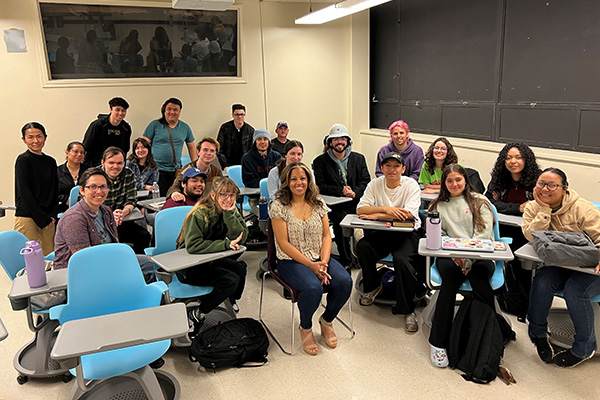
SF State alumna Sarah Allen recently visited campus for a guest lecture in Cinema Lecturer Miyo Inoue’s “Perspectives of Documentary” class.
Earlier this month, Allen (B.A., ’99) received a Sports Emmy Award nomination as executive producer of “Stand.” The documentary, on Showtime, explores the controversial career of basketball player Mahmoud Abdul-Rauf.
Recreation, Parks, Tourism and Holistic Health Professors Erik Peper and Richard Harvey gave presentations at the Biofeedback Federation of Europe’s 22nd meeting, held in Ljubljana, Slovenia, April 8 – 13.
Peper delivered an invited presentation and two poster presentations. His invited presentation is titled “How breathing may reduce menstrual cramps in college students.” Peper’s poster presentations are:
- “Social media messages about diaphragmatic breathing may moderate menstrual cramps,” co-authored by Harvey, students Nick Heinz and Singing Chen and Rachel Feinberg.
- “Benefits of Biofeedback Stress Management Community Group Training Program,” co-authored by Vietta Wilson and Kathy Somer.
Harvey delivered an invited presentation titled “Psychophysiological factors in insomnia and sleep.”